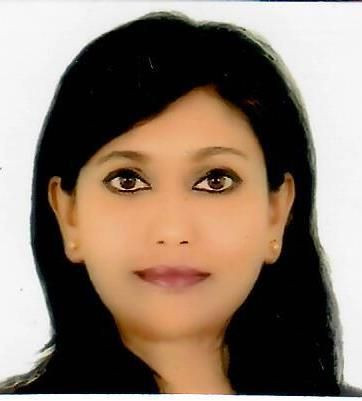Bangladesh's First Female Ambassador In Middle East Seeks To Help Migrant Workers

KEY POINTS
- Nahida Sobhan is Bangladesh's first female ambassador to a Middle Eastern nation
- Jordan has more than 100,000 female Bangladeshi workers
- There are 72 female MPs. Bangladesh parliament
Nahida Sobhan, Bangladesh's first female ambassador to a Middle Eastern state, wants to assist women migrant workers who have suffered abuse.
Sobhan, 52, who was named the top envoy to Jordan late last year, said one of her first tasks will be to construct a shelter at the Bangladeshi embassy in Amman for vulnerable women laborers.
Sobhan, a career foreign service officer, has already served in diplomatic posts in Rome, Kolkata and Geneva.
Sobhan studied public international law at The Hague Academy of International Law in the Netherlands and received a diploma in international relations from the Institute of Public Administration in Paris. She earlier obtained her bachelor’s and master’s degrees in English literature at Dhaka University in Bangladesh.
Jordan is one of several Middle East and North African countries that employs thousands of Bangladeshi female migrants as housekeepers, maids and garment workers. But many of these women end up exploited and abused by their employers.
Jordan itself has more than 100,000 female Bangladeshi workers, who are mostly from poor, rural backgrounds.
"There are certain issues that woman migrants do face and I will try my best to solve those," said Sobhan. "When you are serving, it doesn't matter whether you are a man or a woman, but it is true that if a Bangladeshi woman falls [into] trouble, she will be more comfortable to open up to [another] woman.”
In 2019, at least 1,500 Bangladeshi women returned home from Saudi Arabia after enduring abuse, up from 1,300 in 2018. The abuse that occurs in Jordan is reportedly far less than in Saudi Arabia.
"In 2019 we received about 20 to 25 complaints from Bangladeshi workers in Jordan and they were mostly related to wage issues. They were not paid properly," said Lily Jahan, chairman of BOMSA, a Bangladeshi migrants’ rights group. "Some of them were beaten when they protested. We informed the government about these cases."
Sobhan said the labor laws of Jordan are "supportive" and that migrants didn't face "severe difficulties" there. She added: "I believe my identity as a woman will give me leverage in garnering the trust of female Bangladeshi migrants.”
Sobhan also said the Bangladesh government wants to promote as many women ambassadors as possible.
"Currently, there are about seven female ambassadors out of 50. The message with my appointment is that things are changing for the better and things will continue to change," said Sobhan.
Sobhan also praised Jordan for the progress women in that country have made.
"Bangladesh and Jordan have strong similarities in social development, especially in girls' education," she said.
She complimented Jordan’s highly educated female population and these women's "potential to advance and deliver economic, social, and political development."
"Bangladesh is perhaps the world's only country where in its national parliament, the leader of the House, the deputy leader of the House, the speaker, and the leader of the opposition are all women,” Sobhan added. “In the present parliament, there are 72 female MPs. Bangladesh has secured the top position in South Asia in reducing gender disparity.”
Bangladesh’s very first lady diplomat was Nasim Firdaus who joined the foreign service in 1977, six years after the founding of the country. However, she did not become a full-fledged ambassador until 2002 when she was appointed the top envoy to Indonesia.
Mahmuda Haque Choudhury was the country’s first lady ambassador, serving in Bhutan from 1996-1998.
“All the lady diplomats have on… average been performing brilliantly as their male counterparts as ambassadors and diplomats of Bangladesh, without any gender stereotyping as women,” said Saida Muna Tasneem, the current high commissioner for Bangladesh to the United Kingdom, and former ambassador to Cambodia and Thailand. “Hence, they should not be [placed] especially under the microscope just because they are women.”
Tasneem added: “I have never faced any difficulties in discharging my diplomatic or patriotic responsibilities just because I am a woman or a female diplomat, certainly no more than what a male diplomat would otherwise face under challenging circumstances.”
Bangladesh’s Ambassador to South Korea Abida Islam said that policies engineered by Bangladesh’s Prime Minister Sheikh Hasina have greatly benefitted women.
“If you look at the history of Bangladesh, you will see that women empowerment is remarkable,” Islam said. “I must give credit to our honorable prime minister because she believed that if we leave behind this half of the population, none of our development can be sustainable. In Bangladesh, women are everywhere. They are in all traditional professions, including in the government, private sectors and defense. Empowerment of women has been the most important contributing factor to our impressive development.”
© Copyright IBTimes 2025. All rights reserved.





















